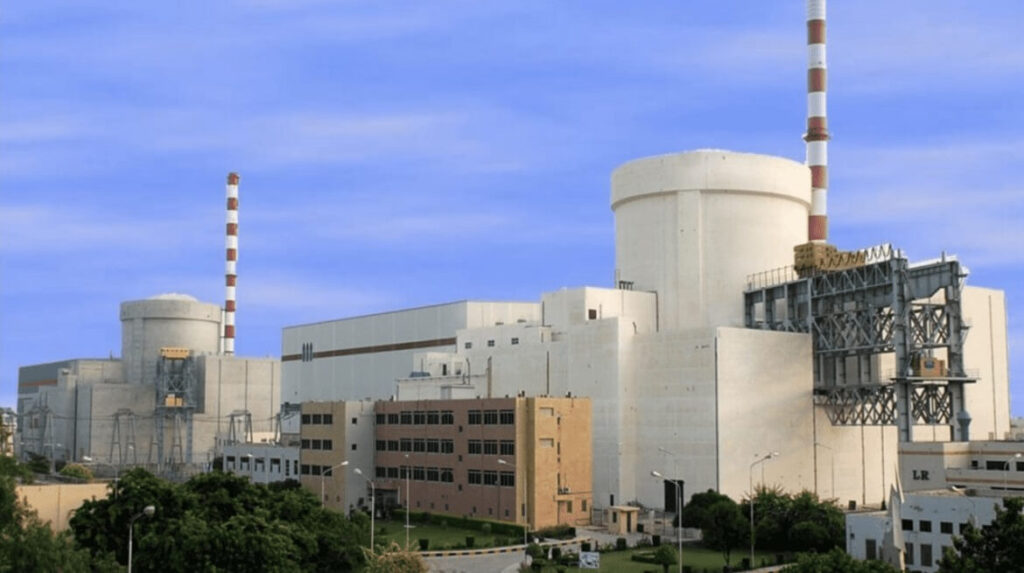A Path to Sustainable Energy Security and Economic Development
By Muhammad Usama Khalid
The worldwide dependence on hydrocarbons has markedly exacerbated environmental degradation, leading to dire outcomes including flash flooding, glacial melt, elevated sea levels, and altered weather patterns.

These difficulties highlight the pressing necessity for cleaner and more sustainable energy solutions. Nuclear energy, noted for its efficiency and minimal environmental impact, has become a favored solution for these challenges. The International Atomic Energy Agency (IAEA), the global regulatory authority governing the peaceful application of nuclear technology, aggressively promotes the utilization of nuclear energy as a feasible remedy to alleviate the detrimental impacts of climate change.
Nuclear energy is crucial for fostering sustainable economic growth and improving human well-being in the modern period. It provides a clean, dependable, and economical energy source that can satisfy increasing energy demands while diminishing greenhouse gas emissions. Transitioning to nuclear energy enables states to ensure a reliable and cost-effective energy supply, thus tackling energy security and environmental sustainability. This underscores the essential need to integrate nuclear energy as a fundamental element in global initiatives to address climate change and foster sustainable development.
Pakistan has historically been a central topic in international discussions as a result of its acquisition of nuclear weapons in 1998, primarily for security purposes. Pakistan’s civil nuclear program has its roots in the mid-1950s, underscoring the country’s ongoing commitment to the peaceful application of nuclear technology. The Pakistan Atomic Energy Commission (PAEC) was established in 1956 as Pakistan’s first regulatory authority. Its primary responsibility is to oversee and regulate the country’s civilian nuclear programs. Furthermore, Pakistan participated in the Atoms for Peace initiative of U.S. President Dwight D. Eisenhower, which served as an indication of its initial commitment to the application of nuclear technology for the purpose of development and peace.
Civilian nuclear collaboration between China and Pakistan began in the late 1970s and was formalized by an agreement in 1986. This partnership enabled the advancement of the Chashma Nuclear Power Plant (NPP) projects, greatly enhancing Pakistan’s economic and technological capabilities. The establishment of supplementary nuclear reactors is an extension of the 1986 nuclear accord, which precedes China’s accession to the Nuclear Suppliers Group (NSG). This collaboration has faced criticism from Western academics and officials, who have said that China is contravening the NSG norms.
Pakistan has strategically employed civil nuclear technology to promote socioeconomic development and fit with the United Nations Sustainable Development Goals (SDGs). This comprehensive strategy has facilitated the utilization of nuclear technology in various essential sectors, such as healthcare, hydrology, energy generation, environmental management, fundamental scientific research, and agricultural advancement. These applications have enhanced the nation’s developmental goals and elevated the quality of life for its residents.
A fundamental aspect of Pakistan’s civil nuclear program is its dedication to sustainable development via energy security. Pakistan seeks to raise its nuclear energy capability to diminish dependence on fossil resources, thereby tackling energy deficits and environmental issues. This shift highlights the overarching goal of incorporating clean and dependable energy solutions into the national infrastructure, demonstrating Pakistan’s commitment to attaining sustainable, long-term economic growth while fulfilling its international responsibilities under the SDGs.
The shift to nuclear energy presents Pakistan with a viable option to address its increasing energy requirements, as nuclear power delivers a clean, dependable, and consistent source of electricity. Data from the Finance Division indicates that Pakistan’s current Nuclear Power Plants (NPPs) produce 2,530 megawatts (MW), contributing roughly 7,076 million units of energy to the national grid during the July-March period of FY2021. The projected completion of the Chashma-5 Nuclear Power Plant is estimated to contribute an extra 1,200 MW to the national grid, providing roughly 3,350 million units of power each year. This extension signifies a strategically important enhancement in Pakistan’s energy infrastructure.
The dedication to international nuclear safety and security standards is demonstrated by Pakistan’s 48-year history of producing electricity from nuclear reactors without any known incidents. The IAEA has verified that the country’s current civil nuclear reactors comply with the safety criteria established in the Generic Reactor Safety Review (GRSR). The IAEA’s evaluation of the ACP-1000 reactor underscores the incorporation of both active and passive safety systems, confirming its adherence to all specified safety standards. These strong credentials highlight Pakistan’s commitment to employing nuclear technology solely for peaceful applications. This strategy enhances the nation’s energy security while guaranteeing a safe and sustainable nuclear energy program in accordance with international standards.
Consequently, Pakistan’s growing reliance on nuclear power as part of its broader energy strategy reflects its commitment to securing a sustainable energy future. By expanding its nuclear power capacity, the country aims to address its increasing energy demands while advancing economic development and environmental sustainability.
However, realizing the ambitious target of generating 8,800 MW of electricity from nuclear energy by 2030 will require substantial international collaboration. Such support is not only crucial for the growth of Pakistan’s nuclear energy sector but also for ensuring long-term energy security and meeting the nation’s sustainable development goals. As global energy landscapes evolve, Pakistan’s nuclear ambitions offer a promising model for achieving both energy independence and economic prosperity.
Author: Muhammad Usama Khalid – Research Officer at Balochistan Think Tank Network (BTTN), BUITEMS, Quetta.
(The views expressed in this article belong only to the author and do not necessarily reflect the editorial policy or views of World Geostrategic Insights).







